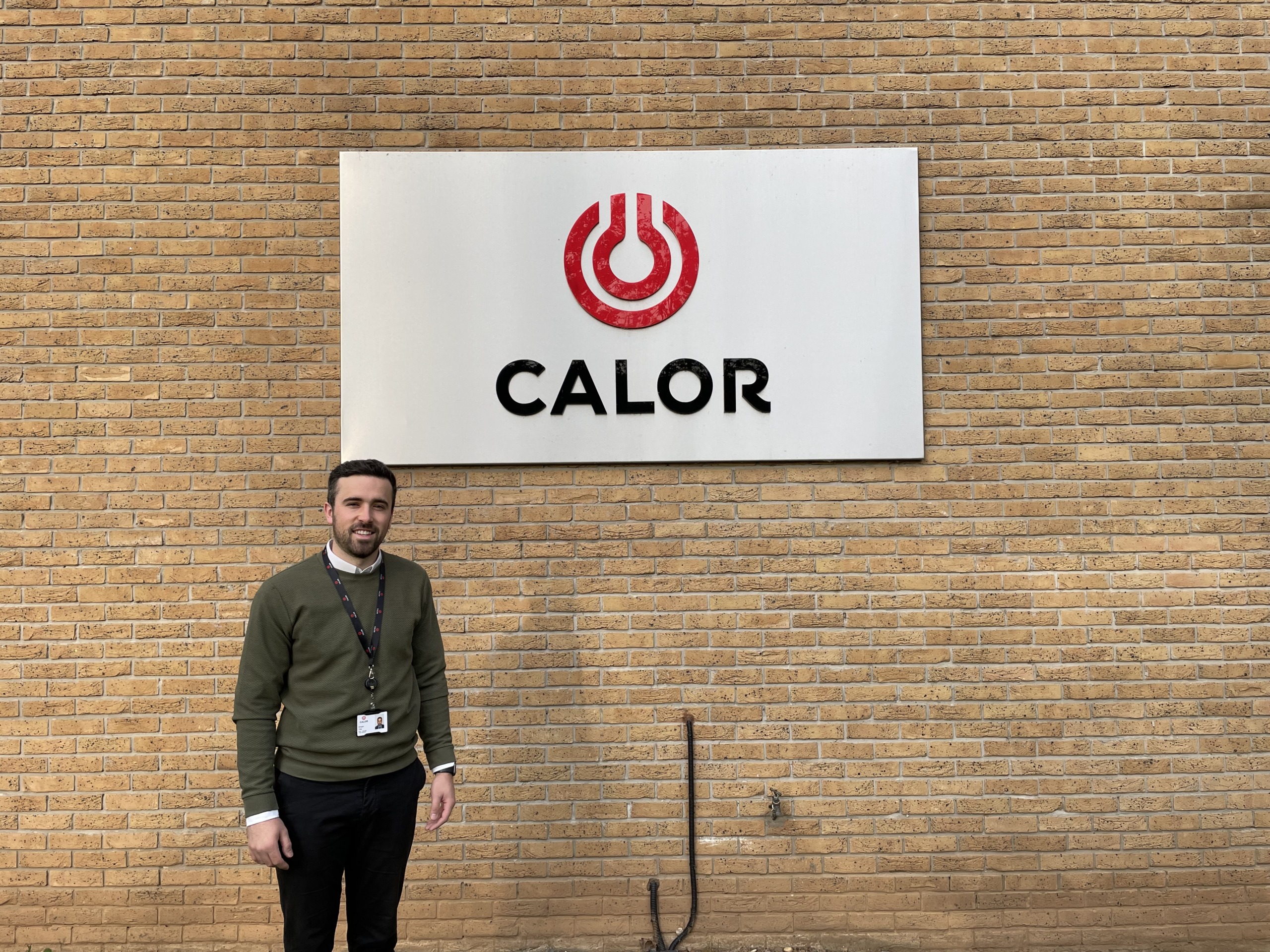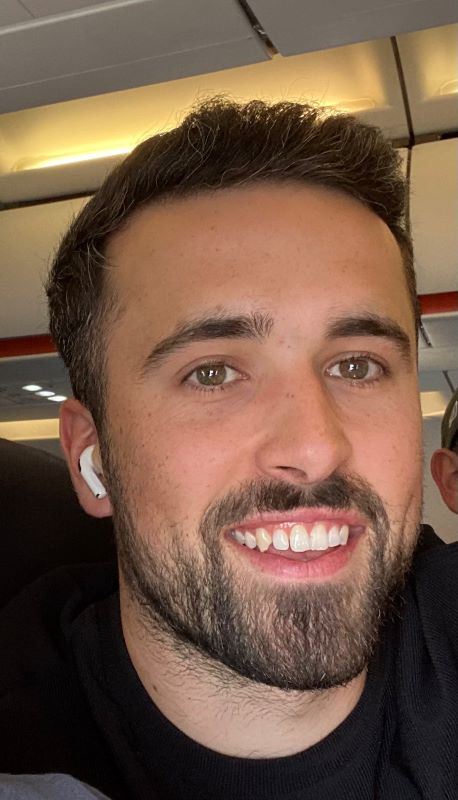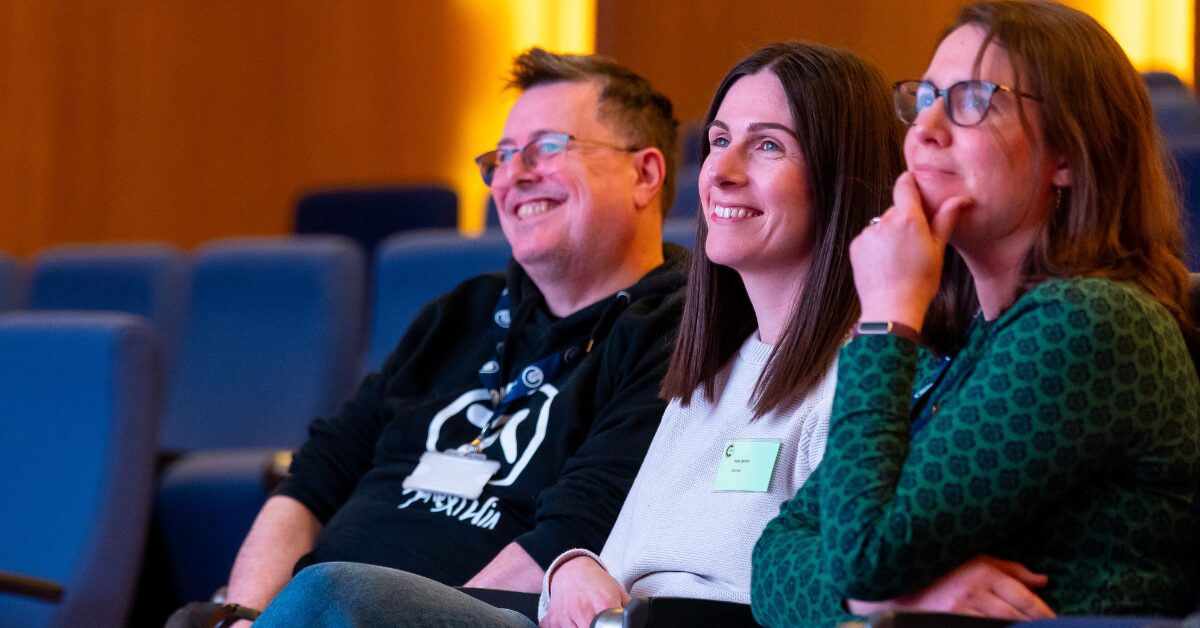Balancing work and studies: My experience as a part time Renewable Energy MSc student
24/05/2023

Hello, my name is Morgan! I’m studying a Renewable Energy MSc at Cranfield part time whilst working as a Principal Engineer in Sustainable Fuels at Calor Gas Ltd. In this blog post, I will share my experience of balancing work and studies, my reasons for choosing Cranfield University, and the highlights of the course.
There were several reasons why I chose Cranfield for my part time Masters. To start with, Cranfield has an excellent reputation for postgraduate studies in engineering and technology, particularly in renewable energy. Secondly, from the very first time I spoke to someone at Cranfield it was apparent that they were very flexible in designing the course to fit my work situation, not the other way around. Finally, the course is accredited by the Energy Institute, therefore completing the qualification enables me to gain knowledge and skills relevant to apply for chartered engineer status.
My interest in renewable energy was sparked during my undergraduate studies in Chemical Engineering. I was fascinated by the potential of renewable energy to address the global energy crisis and reduce carbon emissions. After starting my career within the energy sector at a fossil fuel company, I developed a keen interest in sustainable fuels and their potential to contribute to a low-carbon future. Pursuing a postgraduate degree in renewable energy has enabled me to deepen my understanding of the subject and apply my learning to my work.
There definitely are benefits and drawbacks in studying part time. One of the main advantages is the flexibility it offers, as it allows me to gain a qualification whilst working full-time. This also has enabled me to apply my learning directly in my job, which has been beneficial for my work performance. I also really enjoy my job, so it was great not to have to give it up to pursue further learning. However, the main disadvantage of part time study is the additional workload as it can be challenging to managing multiple priorities and deadlines. As well as this, the course duration is longer (2 or 3 years) compared to the full-time route (1 year), this requires more dedication and persistence to complete.
Part time study at Cranfield involves attending lectures and completing assignments alongside full time students, but over a longer period of time. The course is typically spread over two to three years depending on how much time you can commit. For part time students the taught modules last 4 weeks. I attend lectures at Cranfield for the first week which means completing my day job in the evenings, I then have three weeks to complete the assignment which allows me to go back to work in normal working hours – leaving the evenings and weekends for university work!
The Renewable Energy MSc has been a great experience so far. The course covers a wide range of subjects, including wind, solar, bioenergy, and energy systems. The lecturers are experienced and knowledgeable, and the class sizes are relatively small, enabling more interaction and engagement. My favourite project so far as been the Short Research Project assignment where I found that the UK has huge potential in terms of native bioethanol production. In the near future I’m attending the Westmill Solar and Wind Farm which should be a great experience and not one many people get to do!
In conclusion, studying part time for a Renewable Energy MSc at Cranfield has been a challenging but rewarding experience. Balancing work and studying have required dedication and persistence, but the opportunity to apply my learning directly in my job has been invaluable. The course content and facilities at Cranfield are top-notch, and the lecturers are experienced and knowledgeable. I would highly recommend this course to anyone who is passionate about renewable energy and wants to make a positive impact on the world.
Categories & Tags:
Leave a comment on this post:
You might also like…
Mastering the art of revising your writing
You’ve done the research and written your first draft. Now it’s time for one of the most crucial jobs as a writer - revising your writing to ensure your reader does not have to work ...
A ‘hands-on’ take on warehouse design as part of my Logistics and Supply Chain MSc
As part of my core module for my Logistics and Supply Chain Management MSc, I had the amazing opportunity to work on a warehouse design project a few weeks ago. The problem statement for ...
Thinking about your literature review?
As part of your PhD or Master’s thesis, you will probably have to write a literature review. A successful literature review will offer an analysis of the existing research in your field, demonstrating your understanding ...
A beginner’s guide to sourcing a company beta
Beta is the measurement of a company’s common stock price volatility relative to the market. If you’re trying to find a current beta for a company there are a number of places to look. These ...
Credibility, confidence and collaborative focus: The impact of studying for a sustainability apprenticeship at Cranfield
For participants on Cranfield’s Sustainability Business Specialist Apprenticeship, it doesn’t take long for their studies to start to have an impact, with that impact ranging from personal growth and career progression, to organisational effect ...
Meet Mendeley: a powerful referencing tool that does the hard work for you!
Are you looking for a way to manage your references, create in-text citations and reference lists for your assignments or thesis? If so, you may wish to consider using Mendeley. What is it? Mendeley is ...







